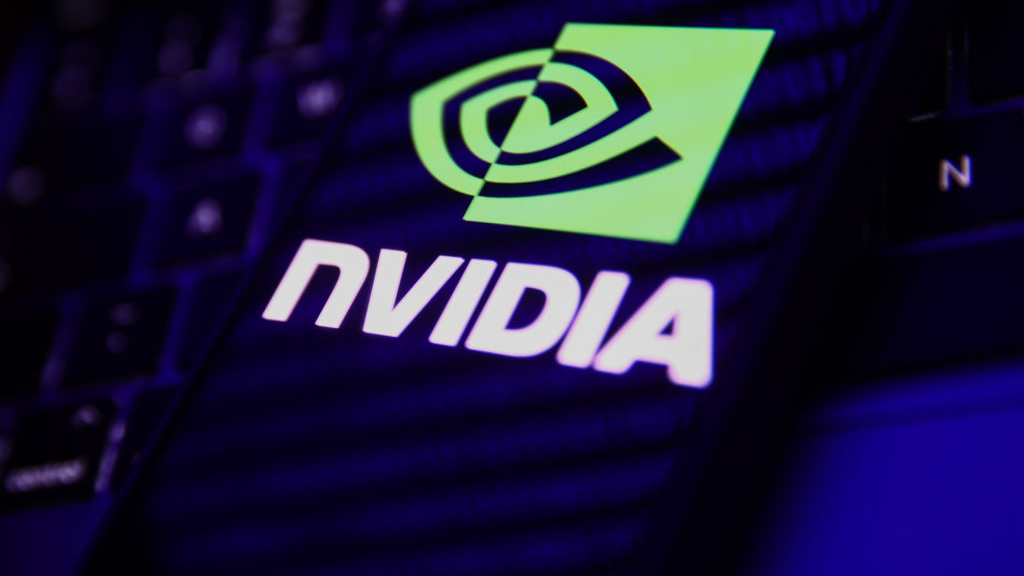Nvidia’s next-gen rumors bring good and bad news for gamers: RTX 5080 may not make 2024, but RTX 5090 and Blackwell laptop GPUs look promising
Fortunately the RTX 5090 could still pitch up early, and mobile GPUs might be more powerful than expected

Sign up for breaking news, reviews, opinion, top tech deals, and more.
You are now subscribed
Your newsletter sign-up was successful
Nvidia’s RTX 5080 GPU may not turn up this year as was previously rumored by a prominent leaker, but there’s a few pieces of better news regarding next-gen Blackwell graphics cards.
Moore’s Law is Dead (MLID) just posted a new video on YouTube discussing Blackwell (among other topics), and cites a source at Nvidia as going back on the previous rumor that both the RTX 5090 and 5080 might arrive later in 2024.
Well, sort of – they haven’t completely written off the possibility of an RTX 5080 launch this year. The source says they are “getting the impression” that only the RTX 5090 is going to be released this year, but they aren’t 100% sure. So, in theory, two Blackwell (RTX 5000) desktop graphics cards could still pitch up this year.
So, what about that better news? Firstly, we can expect Blackwell to be revealed soon enough, likely at Computex (next month). And on top of that, if there is only an RTX 5090 coming, the odds are it won’t debut right at the end of 2024. It should hopefully arrive early in Q4, so the next-gen flagship GPU could be on shelves in October.
A second source MLID spoke to echoes the possibility of an earlier launch – mentioning Q3 as a chance, or Q4 – and that at least one Blackwell graphics card will be coming (meaning there’s still a chance of two turning up). This source also backs up the Computex announcement theory, so it’s seeming quite likely.
Finally, a third source chimes in on RTX 5000 laptop GPUs, and in this regard Blackwell is very much along similar lines as Lovelace (RTX 4000) was at this stage of its development in 2022 – albeit perhaps a month or two behind.
So, in short, we should expect a similar launch timeframe there, meaning early 2025. RTX 4000 mobile GPUs arrived from February 2023 onwards, so we could be looking at March 2025 for RTX 5000 in laptops.
Sign up for breaking news, reviews, opinion, top tech deals, and more.
The final piece of positive news here is that we can expect the top-end mobile GPUs for Blackwell to have more oomph, with the suggestion – and it is just that, mind – that the RTX 5080 mobile chip will be the GB203. Remember, with Lovelace, the RTX 4080 mobile was dropped back to use the AD104 chip, so Blackwell would be moving up a tier effectively.
That source also says Nvidia is definitely using GDDR7 for the video memory of the laptop GPUs, as well as desktop offerings.
Analysis: Launch spacing
More powerful laptop GPUs would certainly be welcome to supercharge the best gaming laptops out there, but let’s not get carried away with that notion yet. The word from that last source is vaguer and acknowledges that they just have a suggestion of a peppier RTX 5080 mobile (based on purported heat resistance values). Still, it’s an exciting hint of things to come.
Granted, it’s more disappointing to have some cold – or at least cool – water poured on the RTX 5080 desktop graphics card arriving in 2024 theory. But as noted, this isn’t a launch that’s completely ruled out yet.
Still, we’d typically expect the RTX 5080 to arrive in (early) 2025, just because Nvidia tends to space out the launch of the flagship and this next-tier-down model. However, if the RTX 5090 does turn up early in Q4, meaning October, that does provide enough room to leave a gap before the RTX 5080 could be deployed in late November.
However, what perhaps also plays against the idea of an RTX 5080 in 2024 is that we can guess Nvidia’s priorities are with AI – where the real money and big profits are to be made, not with GeForce gaming graphics cards. The other danger is that even if RTX 5000 GPUs do arrive in 2024 – a pair of them, even – they might be very thin on the ground, with production levels pretty low to begin with for the same reason. Pumping out AI chips is always going to be the priority in the current climate, and we can’t see that changing in the foreseeable.
You might also like
Darren is a freelancer writing news and features for TechRadar (and occasionally T3) across a broad range of computing topics including CPUs, GPUs, various other hardware, VPNs, antivirus and more. He has written about tech for the best part of three decades, and writes books in his spare time (his debut novel - 'I Know What You Did Last Supper' - was published by Hachette UK in 2013).
